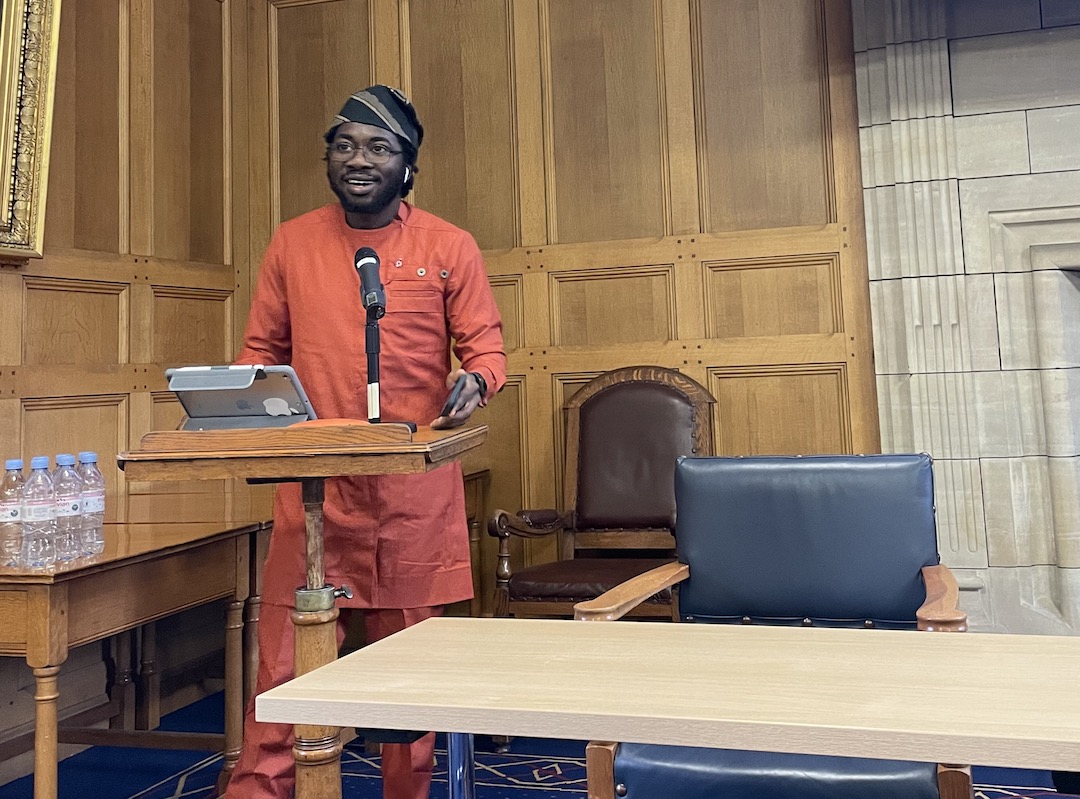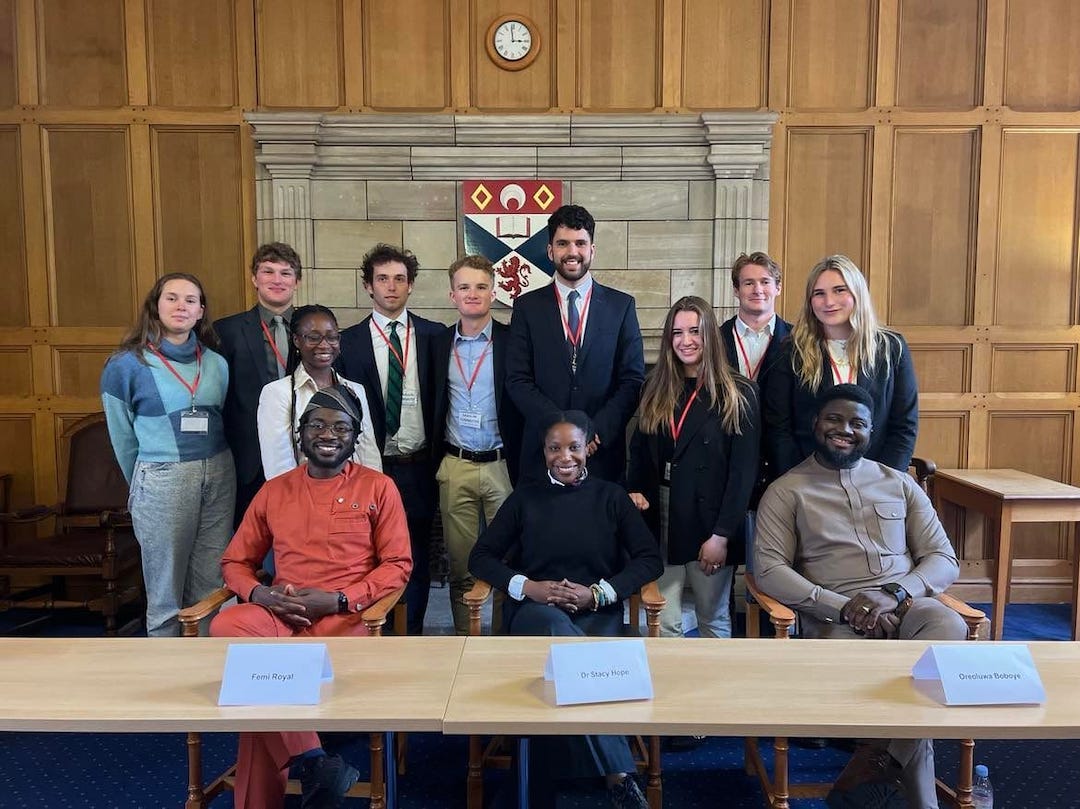
Agritech expert, Oluwafemi Royal Aliu, is one of the few leading the way with innovation; using technology to drive overall organisational growth in Nigeria’s agriculture sector.
[ad]
The use of autonomous robots and artificial intelligence (AI), Oluwafemi suggests, has the potential to bridge labour shortages in the Agricultural sector and scale up productivity.
He shared these thoughts at the 9th Annual St Andrews Africa Summit at the Parliament Hall, St Andrews University in Scotland held on Saturday, April 1 2023. The summit was themed, “Escaping Exploitation; Navigating the Resource Centre.”
Oluwafemi, who leads a team of Agritech professionals at Thrive Agric, explained how maximizing technology in agriculture using Artificial intelligence and other innovations like genetic technology has helped the startup record better output.
Thrive Agric is a Nigerian-based agritech startup, where Oluwafemi and his team have deployed a digital application known as Tradr for commodity traders to list, buy and sell agricultural commodities from the comfort of their rooms.
[ad]
According to Oluwafemi, this has eliminated a lot of inefficiencies and made most of these transactions seamless, paperless and non-traditional with the aid of technology, a catalyst for multi-sectoral growth in Nigeria.

In 2020, despite the COVID-19 pandemic, the Information, Communication and Technology (ICT) sector contributed 15 percent of Nigeria’s gross domestic product (GDP).
On the other hand, the agriculture sector contributed 23 percent to the nation’s Gross Domestic Product (GDP) in the first half of 2022. While these two sectors are actively aiding the growth of the economy, young persons have been the driving force.
Oluwafemi believes that matching technology and agriculture will eliminate the impact of skill and labour shortages in the industry.
“We also deployed improved varieties and micro machines that ease planting for farmers and harvesting as well as deal with post-harvest losses to promote food security in Nigeria,” he said at the summit.
Oluwafemi spoke in a lineup of top-rated professionals including Dr Stacy Hope (Chairman of the Fair Cobalt Alliance), Dr Ife Okafor-Yarwood, Professor and Lead Researcher, Gulf of Guinea Maritime Insecurity team and Boboye Ore, CEO, Jobberman.
[ad unit=2]



